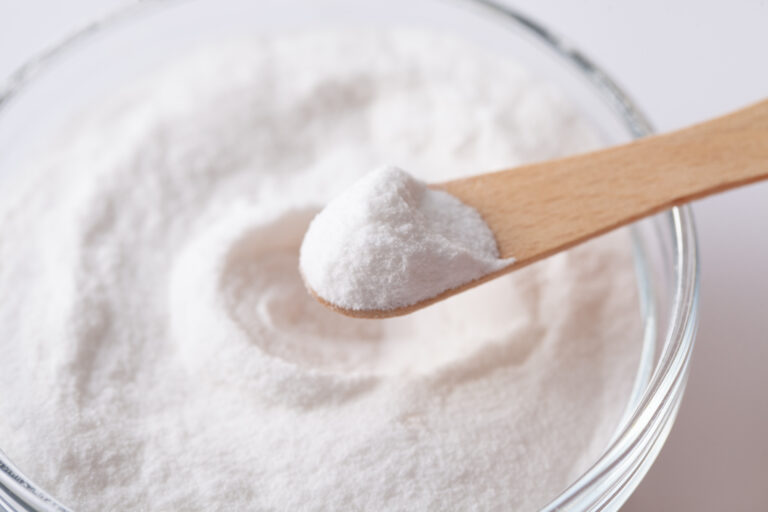With last week’s release of a publication from the World Health Organization (WHO) assessing the health impacts of the non-sugar sweetener aspartame, news and social media headlines linking the words aspartame and cancer are causing sudden and inadvertent fears of use of the sweetener. While a reading of the full articles (generally) puts the reality into better perspective, the tendency of some to read, and repost, only the headlines has led to the viral spread of just a small, yet sensational, aspect of the reality.
To provide our readers with the full story, TAG has conducted further research, with the following focused primarily on data and science published by the WHO, FDA, Health Canada, EU’s EFSA, and the American Cancer Society.
Of greatest significance is understanding that the WHO’s research was conducted by two separate groups. Its JECFA research finding there to be no convincing evidence of the carcinogenicity of aspartame, thus no sufficient reason to change the established acceptable daily intake (ADI) of 0–40 mg/kg body weight. The IARC studies came to a slightly less positive conclusion, but still found there to be only limited evidence for cancer in humans with less than sufficient evidence in experimental animals and thus designated as Group 2B/yellow, with the evidence deemed limited for hepatocellular carcinoma and inadequate for other cancer types.
From this, WHO executives stated that the evidence of an association between aspartame consumption and cancer in humans is not convincing; safety is not a major concern at the doses which are commonly used; and better studies with longer follow-up and repeated dietary questionnaires in existing cohorts is needed.
Since the publication of the study, regulatory and health agencies from other countries have asserted their scientific assessments of the safety of aspartame at approved rates.
US FDA. To provide its scientific take on the WHO publication, FDA responded on its website with the explanation that the IARC labeling of aspartame as “possibly carcinogenic to humans” does not mean that it is actually linked to cancer. Additionally, having reviewed the IARC’s findings in 2021 when first made available, the FDA “identified significant shortcomings in the studies on which IARC relied.” FDA also noted that aspartame is one of the most studied food additives in the human food supply, and that the sweetener has been deemed safe for the general population when made under good manufacturing practices and used under the approved conditions. The agency also continues to monitor the latest science available on sweeteners, including aspartame.
Health Canada. Before permitting the use of aspartame in foods in Canada, Health Canada evaluated an extensive array of toxicological tests in laboratory animals and, once listed for use, they have examined the results of a number of clinical studies. From this, the agency has found no evidence to suggest that the sweetener, when used according to the Food and Drug Regulations and as part of a well-balanced diet, would pose a health risk to consumers. Health Canada is, however, further reviewing the WHO reports, along with information specific to Canada context, to determine if action is needed, which could include reducing maximum levels of use, further restricting foods it may be used in, or no longer permitting its use.
EFSA. In Europe, aspartame is authorized as a food additive to sweeten a variety of foods and beverages, as long as its presence is declared on the label. It and its breakdown products have been authorized for human consumption for many years following thorough safety assessments, with a full re-evaluation having been conducted in 2013. Additionally, with EFSA’s scientists currently re-evaluating the safety of two related food additives, the salt of aspartame-acesulfame and neotame, all aspartame relevant studies that may have become available after 2013 will be considered and the dietary exposure assessment of aspartame updated as part of the re-evaluation.
American Cancer Society. Aspartame concerns have been around for many years, with some of these stemming from the late 2000s Italian studies in lab rats, which had limitations that made their results hard to interpret. Additionally, the results of epidemiologic studies of possible links between aspartame and cancer have not been consistent with some studies suggesting a possible link and others not. While the science is still evolving, the society supports the call for more research and continues to conduct its own studies.
Aspartame Facts.
- Aspartame is an artificial chemical sweetener widely used in food and beverage products since the 1980s. (WHO)
- As a low-calorie artificial sweetener, it is approximately 200 times sweeter than sugar. (EFSA)
- The Acceptable Daily Intake (ADI) for aspartame set by WHO and followed by most countries, including the U.S., is 40 mg/kg body weight. To put this into perspective, a can of diet soft drink contains 200 or 300 mg of aspartame, so an adult weighing 70kg (154 lbs) would need to consume more than 9–14 cans per day to exceed the acceptable daily intake, assuming no other intake from other food sources. (EFSA)
- Aspartame brand names in the U.S. include Nutrasweet®, Equal®, and Sugar Twin®. (FDA)
News that is scary and worrying sells, and as such, there is a never-ending appetite from the media (of all types) to jump on one liners and headlines that don’t always tell the full story. But often the damage is done when such headlines gain traction, and the rest of the story simply gets lost. Food companies have little or no control over such “stories,” but it does behoove food companies to have access to good risk assessors, ideally with some toxicological experience, who can provide swift and coherent communications to appropriate stakeholders when the need arises in situations such as the Aspartame headliner.
If you need assistance, or have questions about other ingredients in your products, give TAG a call. We can help.





